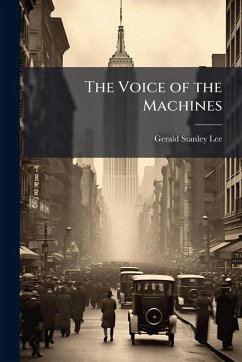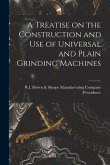"The Voice of the Machines: An Introduction to the Twentieth Century" by Gerald Stanley Lee offers a fascinating glimpse into the hopes and anxieties surrounding the dawn of the 20th century. Published in 1906, the book explores the transformative impact of technology and industrialization on society, culture, and the human spirit. Lee's insightful analysis captures the zeitgeist of an era grappling with rapid change, as machines began to permeate every aspect of life. He delves into the social and psychological consequences of this technological revolution, examining how it reshaped human relationships, values, and aspirations. This thought-provoking work serves as a valuable historical document, providing a unique perspective on the promises and perils of modernity as envisioned by one of its astute observers. Readers interested in the history of technology, social thought, and the cultural landscape of the early 20th century will find Lee's "The Voice of the Machines" to be an engaging and enlightening read. This work has been selected by scholars as being culturally important, and is part of the knowledge base of civilization as we know it. This work was reproduced from the original artifact, and remains as true to the original work as possible. Therefore, you will see the original copyright references, library stamps (as most of these works have been housed in our most important libraries around the world), and other notations in the work. This work is in the public domain in the United States of America, and possibly other nations. Within the United States, you may freely copy and distribute this work, as no entity (individual or corporate) has a copyright on the body of the work. As a reproduction of a historical artifact, this work may contain missing or blurred pages, poor pictures, errant marks, etc. Scholars believe, and we concur, that this work is important enough to be preserved, reproduced, and made generally available to the public. We appreciate your support of the preservation process, and thank you for being an important part of keeping this knowledge alive and relevant.
Bitte wählen Sie Ihr Anliegen aus.
Rechnungen
Retourenschein anfordern
Bestellstatus
Storno








